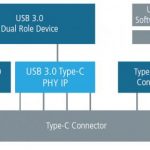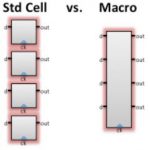Processor cores used in computers and smartphones have become impaired by their own complexity and can’t fully utilize future CMOS generations for increasing their efficiency. Due to the continued increase of density and speed of transistors, these big cores produce too much heat per mm[SUP]2[/SUP] if trying to follow Moore’s… Read More
Electronic Design Automation
Merger Mania: The Future of the Semiconductor Industry
In a semiconductor industry which appears maturing, we are also seeing the technologies unravelling newer transistor structures, memories, processors, and newer ways of designing ICs and electronic systems. The present decade appears to be at the cusp of a new transformation in the semiconductor industry. Amid a slew of mergers… Read More
HiSilicon’s Experience with Synopsys ICC2
At TSMC’s OIP Symposium last month, Zhe (Jared) Lui of HiSilicon presented their experiences with Synopsys’ ICC2 physical design suite.
Jared started by giving an overview of Huawei and HiSilicon. HiSilicon is the semiconductor arm of Huawei. I assume everyone knows who Huawei is. To a first approximation they … Read More
Verification with Tcl for what? – part 2
In Orion Bytes we use Tcl both for the internal research, product and different verification services. We use also SystemVerilog UVM and Python based Cocotb for different approaches. I think it’s no need to deep into the SystemVerilog and UVM principles here – today’s main verification fashion is well described through… Read More
Forget about ThunderBolt, USB Type C is here!
At the early days of Semiwiki (March 2011), I wrote about ThunderBolt, predicting low market adoption of the protocol, for various reasons. One of these reasons was the cost associated with ThunderBolt integration by the OEM. Even if the protocol (associating PCI Express and DisplayPort) was offering better data bandwidth than… Read More
The Revenge of Microprocessor Design: The Return of the Macro
(Two Star Wars™ allusions in one title – eat your heart out George Lucas.) Most of us are comfortable with the idea that you design more or less whatever you want in RTL and let the synthesis tool pick logic gates to implement that functionality. Sure it may need a little guidance here and there but otherwise synthesis is more or less … Read More
Moore’s Law and Silicon Forest
When I first moved to Oregon in 1978 the largest industry was forestry, but then the endangered Spotted Owl was found and that put an end to many forestry companies and decimated the economy of many rural cities. Strangely enough it turns out that the Spotted Owl was found in great numbers across multiple states, so it never should’ve… Read More
Pushing on AXI-connected IP in FPGAs
Success stories are great. Reading how someone uses a product contributes much more insight than reading about a product. Last month we had a teaser for a presentation by Wave Semiconductor; this month, we have the slides showing how they are using FPGA-based prototyping, AXI transactions, and DPI to speed up development.
First,… Read More
Perfecting the Great Verification Fugue
Michael Sanie (Senior Director Marketing in the Synopsys Verification Group) gave the wrap-up presentation at SpyGlass World recently, on the Synopsys Verification Direction. I learned from an interview Michael gave to Paul McLellan that he is an accomplished pianist. I’m a pianist also, though of considerably less talent,… Read More
How Magwel is Tapping Tried and True Business Strategy in Targeting ESD
Often when a company starts out it takes a while for it to find the sweet spot in the marketplace. Very often it is feedback from existing customers and business success that can help point the way for small companies as they grow. This is just as true in EDA as it is in retailing or consumer products. For instance, Mentor Graphics, though… Read More









Basilisk at Hot Chips 2025 Presented Ominous Challenge to IP/EDA Status Quo